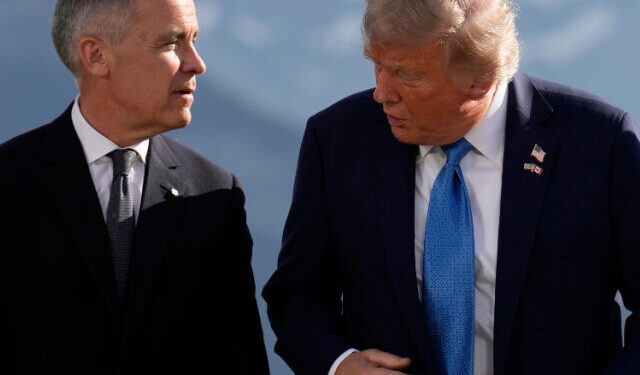President Donald Trump isn’t mincing words—Canada just crossed a line, and the United States is hitting back. After learning of a new Digital Services Tax imposed by Canada that targets U.S. tech companies, Trump abruptly terminated all trade talks with America’s northern neighbor and promised retaliatory tariffs within days.
In a Truth Social post on Friday, Trump called Canada’s move a “direct and blatant attack” on the United States, drawing attention to years of lopsided trade practices that have penalized American workers and industries.
The tax in question, retroactively applied to 2022, is set to begin collecting payments on Monday. It disproportionately impacts U.S. tech companies—Amazon, Google, and Meta among them—under the guise of taxing digital services. It’s a tactic the European Union has embraced, and now Canada is following suit.
Trump didn’t hold back:
“They have charged our Farmers as much as 400% Tariffs, for years, on Dairy Products… They are obviously copying the European Union… which is currently under discussion with us, also.”
In a firm declaration, Trump wrote:
“Based on this egregious Tax, we are hereby terminating ALL discussions on Trade with Canada, effective immediately. We will let Canada know the Tariff that they will be paying to do business with the United States of America within the next seven day period.”
This decision marks a sharp reversal from the recent thaw in U.S.-Canada trade tensions, which had shown signs of easing after the ousting of former PM Justin Trudeau. However, with Mark Carney now at the helm, Canada’s economic posture has taken a turn toward more anti-American protectionism—and Trump isn’t playing along.
From the conservative perspective, Canada’s move reeks of globalist coordination—targeting successful American firms under the pretense of fairness, while exploiting access to U.S. markets. Trump’s swift response reasserts the “America First” doctrine and sends a clear message: if you tax our industries, expect a price.
Under the USMCA agreement, Canadian goods are generally tariff-exempt—unless they violate compliance rules, in which case Trump’s April 2 “Liberation Day” tariffs kick in:
- 25% for non-compliant goods
- 10% for energy and potash
Now, with the digital tax triggering retaliation, Canada could soon face heavy penalties.
Despite warnings from Washington, Canadian officials have refused to back down. “We’ll continue to conduct these complex negotiations in the best interest of Canadians,” Carney said, according to Politico.
But Trump’s move throws a wrench into those “negotiations.” The message from the former president is simple: you don’t get to punish U.S. innovation and then expect business as usual.
With the economy still recovering and global alliances shifting, Trump’s no-nonsense response taps into a core conservative concern: protecting American sovereignty and economic strength from foreign exploitation.
As globalist tax schemes pop up abroad, expect the U.S. under Trump’s leadership to respond with tariffs, not appeasement.
Stay tuned—Canada has seven days to see what it’ll cost.




















